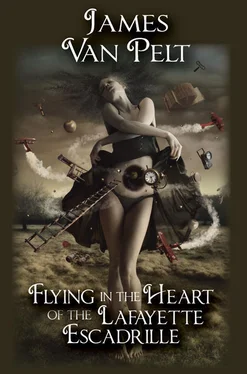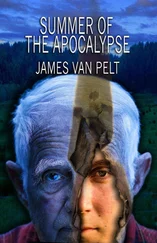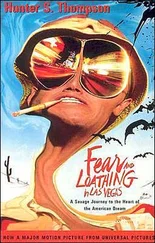Others walked around the village in the same condition. We were in the center of thirty or forty houses where there was a well. Their eyes bulged blankly, and their postures were contorted. Some moaned. Others babbled in Dioula, a dialect in this part of the world I didn’t understand.
“She is possessed by sékés. They control our bodies. Sometimes there are self mutilations, but no pain.” Seydou sought for the proper word as we wove between other villagers, some who seemed fine. A young man smiled at Seydou, and she smiled back. “The sékés are beneficent spirits. Some come from the forest, and from the river and mountains. We hope this Dipri to attract a diamond sékés.”
She sounded reasonable. Intelligent. Well spoken through accent. “You do not believe in these spirits, surely. This is hysterical behavior.” I pointed to the woman who’d bumped us. She thumped into a wall, turned and went the other way.
“And how long have you been seeking God?” Seydou said enigmatically.
“I’m not seeking God.”
Her mood shifted, became dark. “This is not good, here. The company does not care for us. We don’t have schools. We don’t have medicine. During droughts, we suffer. Mothers dry up and their children die. Our elders are buried without ceremony. But we listen to radio. In Seguela, we have seen television. Some of us have gone to schools and come back. We do not have to live like this. We need the price out.”
“A diamond?” I focused my camera on a woman in a one piece dress. Barefooted, cheap plastic gold earrings, close cropped hair; she walked with a limp; one shoulder drooped, as if she suffered from a stroke. She ran into a man seated in the road. He didn’t react to the blow. She almost tripped, then continued her unbalanced walk away. “Maybe you don’t want one. Devoe says bad follows the big stones.”
She said, “And bad will find one.”
Startled, I put my hand on her arm. Those were the words from my dream.
“Everybody knows the stones are cursed. How can a good people find a big diamond without bringing the curse too? It has always been the problem,” she said. “Here, come up and we can see the ceremonies.”
We climbed stairs onto a small platform overlooking the street. I saw several others like it in the village, but I never learned what function they served. In the meantime, it was a good place to watch where the possessed wouldn’t run into us.
Soon a sort of parade formed. Several houses up the street a crowd gathered, chanting, moving to the chant’s rhythm. They made their way toward us, a hundred villagers. A panther man, brandishing a thick-headed club, scuttled by, his leafy outfit rustling. He threatened an old couple, and they flattened themselves against a wall. Some in the parade wore costumes and masks. The masks… oh, the masks were arresting: black helmets that covered the face, white shells in lines striping the head or outlining the mouth, or pointing out around the eyes. And red tassels dangling from their chins or lining the foreheads. Their bodies too were striped in white and black. A giant rose up from the crowd. I swallowed a scream. Seydou looked at me and smiled. A man on stilts, wearing a grass skirt, red and black pants to where his knees would be, and blue cloth to his feet, walked among the revelers.
Five dancing, muscled men painted in black and white proceeded the parade, leading it to the our platform. At first I thought they were performing for me, but they weren’t. They looked up, but through me as if I didn’t exist. They performed for Seydou. She stood beside me, her hands on the rail, nodding as they danced. Who was she? Maybe she did act as a shaman to these people. I felt as if I’d entered a cathedral and stood beside the priest. I almost expected her to raise her hands in benediction.
A young girl, wearing a beautiful white-feathered headdress came from the crowd—she might have been eight years old—and joined the dancers. One dancer bent down, forming his hands into a cup; she stepped into it, and he stood, sending her into the air, high above their heads. Two other dancers caught her, bouncing her up again. She spun back to the first who now had a partner. The men tossed her back and forth to the crowd’s applause. Every flight changed. Gravity didn’t hold her. She spun, flipped, rotated backwards, all with long limbed grace. Then, the fifth man stepped into the space between them. The girl flew over his head. He pulled a narrow knife from his waistband, holding it high. The girl bounced back, her arms extended, her back arched, as if in a swan dive. As she reached her peak, the knife tip appeared to touch her. I held my camera at my chest, afraid to raise it to my eyes.
She flipped, kissed the knife as she went over; he appeared to catch her on knife point, to lift her up. The villagers clapped and chanted. The sun beat down and their feet raised dust. My camera dropped to the rail, stopped by my neck strap. I would have fallen; my heartbeat flooded my face, pulsing in my ears, but Seydou touched me. “She’ll be fine,” she said.
Then, the girl sprung from two of the dancers in the other direction, landing on her feet. The knife man howled, his eyes rolling back. He staggered once in a wide circle, his knife blindly in front, and the crowd retreated.
“This is good. The sékés visit him. It means our quest will go well if a dancer receives a spirit.”
The man howled, his back distorted, eyes unfocused. He waved the knife, edge careless, and it caught him on the upper arm, opening a long cut. Skin flapped while blood ran to his elbow. As he twirled, the knife passed by his face, and he seemed to see it for the first time, as if it wasn’t in his hand before. He stood below us, his head level with knees, two feet away. The knife came down, rested on his belly. I could smell his sweat, he posed so close. He looked down at the knife, watching it touch him, and he became very still. The crowd hushed. The knife moved, almost on its own; the dancer did not appear to be in control. It rotated out, so the point stayed on his stomach. He gripped the handle with his thumb on the end, and the blade entered him. Two or three inches disappeared. He cut a slit to the side, then dropped the knife without reaction. No pain displayed. No moan. Blood soaked his shorts; it washed down his leg, over white paint.
I stepped back, chills rushed in my back, goosebumps everywhere, my skin as cold as stone; my gut tightened. The sun, though, still pressed down, sharp-edged, flaming tiny reflections from earrings, from the knife at his feet. Dust caked in my mouth.
He reached into the cut, pulled out a section of his own intestine, then turned to the crowd. They moved in. When he fell in contorted rigor, they caught him.
“He’ll be fine, too,” Seydou said. “They will rub his wound with herbs so he will heal without infection.”
Everyone chanted, bouncing to the rhythm, the heads rising and falling like waves, and it felt as if I were on the ship again, a deep sea swell moving through me. Seydou left the platform and walked into the crowd; they parted to make room for her. She waited for me, then directed me from the village.
I’m not very old, but I’ve been places. I’ve seen things most people have never seen, but I’ve never felt anything like Dipri: people bouncing around me, calling out words, chanting; I heard pattern in the chaos, and they pressed between the houses. Some laughed and chattered, but beneath it was their feet sounds moving down the path, and Seydou’s hand on my back, keeping me in line. A woman bumped me, her eyes roved through the space I occupied, never pausing. She couldn’t see me. Again I felt as if I’d stepped onto another planet. I didn’t belong. Some other day, perhaps, but not today as they walked and danced toward the diamond pit.
Читать дальше










